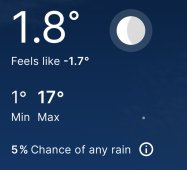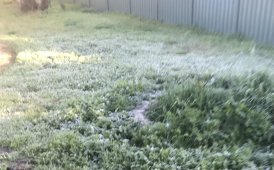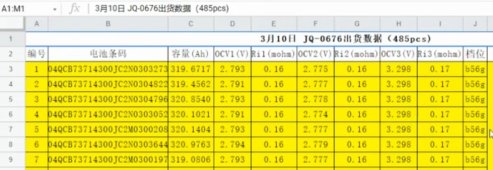mcart117
New Member
- Joined
- Mar 28, 2022
- Messages
- 121
I roll my eyes a bit when people warn of the dangers of charging LiFePO4 cells below 1º c because I live in Australia and I am more worried about keeping the cells cool when the ambient temperature goes over 40º. So I set up a bench test with the charging cycle to run over night, and before turning in, had a quick check of the temperature and forecast for the night.

The test bench is on an enclosed verandah, but the roof is tin, so it gets chilly. Although I thought it was unlikely the cell itself would go below 1º, I stopped the test, just in case. I wonder would the regulars here have let the test run, or would they also have stopped it?
The following morning there was a frost outside, but a glass of water on the bench showed no signs freezing. So I might have got away with it, but sometimes it's better to be safe than sorry.


The test bench is on an enclosed verandah, but the roof is tin, so it gets chilly. Although I thought it was unlikely the cell itself would go below 1º, I stopped the test, just in case. I wonder would the regulars here have let the test run, or would they also have stopped it?
The following morning there was a frost outside, but a glass of water on the bench showed no signs freezing. So I might have got away with it, but sometimes it's better to be safe than sorry.





